 Eduardo Rózsa-Flores (Eng)
Eduardo Rózsa-Flores (Eng) Hungarians in Bolivia
The Hungarian political scene is relatively quiet at the moment. The MSZP and SZDSZ caucuses are planning to do something against holocaust denial, but knowing the Hungarian Constitutional Court most likely nothing will come of it. Another Gypsy was killed, this time in Tiszalök. This man certainly wasn't stealing wood from the nearby forest. Both he and his wife had jobs and lived in relative comfort. He was just getting into his car around 6 p.m. to go to work when he was shot dead. The police are madly looking for the perpetrator whom they suspect has military training and might be responsible for two earlier assassinations.
The question of military training takes us straight to Bolivia and perhaps reveals something about the Hungarian far right as well. The Hungarian Foreign Ministry's reaction to the Bolivian attack on the Bolivian-Hungarian-Croatian-Irish "terrorists" has been, in my opinion, somewhat hasty. Although the new foreign minister keeps repeating that the Hungarian government considers this case a "consular" matter, the first announcements were tinged with political overtones. That is, the Hungarians don't think that Rózsa-Flores and his co-conspirators were terrorists. Neither do the journalists. The word "terrorists" is always in quotation marks. Here is a good example. The caption reads: "Confiscated weapons from 'terrorists' in Santa Cruz: A show?" In brief, they consider the Bolivian allegations baseless. As far as I can ascertain, Rózsa-Flores might not have wanted to assassinate Evo Morales, but he certainly went to Bolivia to organize an army. Meanwhile MTV aired a video by András Kepes who has a weekly program called "Strange Stories." Eduardo Rózsa-Flores, an old friend of Kepes, approached him to videotape a conversation that Kepes was supposed to keep secret and release only in the event of Rózsa-Flores's death. The conversation took place on September 8, 2008. Rózsa-Flores told Kepes that he had been approached by people from Bolivia asking him to come and organize an army that was supposed to defend the eastern provinces' autonomy from the central government. Although he emphasized that this army was supposed to act only in self-defense, by the end it was clear that if Santa Cruz's aim of autonomy was in any way threatened, this army was ready to engage in a civil war. Rózsa-Flores and his co-conspirators received money for travel expenses to Brazil where "his friends" waited for him at the airport. They took him by car to the "green zone" and on foot he crossed the border illegally through the jungle. On the other side, friends met him and took him to Santa Cruz. In the video Rózsa-Flores didn't mention anyone else, but he must have recruited men from the Székely Legion made up of Transylvanian Hungarians living in Hungary.
The video offered some interesting tidbits about Rózsa-Flores's life. A few years ago he bought a house in a village somewhere in northern Hungary. On the solid wooden fence one can see MONDJON LE! in large white letters. "Resign!" in English. When Kepes inquired who should resign, he jokingly said: "Everybody should resign!" It is of course obvious whom he had in mind: Ferenc Gyurcsány. After all, Fidesz had demanded the same for years. Gyurcsány's picture was plastered on some kind of damaged military object and the rumor spread that Rózsa-Flores practiced target shooting there. That turned out not to be the case. However, he had a somewhat damaged Stalin bust in his backyard with a whole in its head. Rózsa-Flores said something to Kepes about using the bust as a vessel for "vomiting" after drinking bouts. However, people remember when Rózsa-Flores's room was full of Lenin and Che Guevara pictures and Stalin statues. That time not as a joke. In his yard one can also find Christ on the cross alongside Stalin and Gyurcsány. All sorts of helmets that Rózsa-Flores had collected over the years were placed in a row . He mentioned something about trips to Baghdad, Indonesia, Sudan, and his conversion to Islam. However, his conversion didn't prevent him from serving as an altar boy in the local Catholic church.
It is fascinating how Rózsa-Flores's image has been morphing of late in certain circles. Kepes thinks that he was a unique individual who cannot be labeled simply as a left- or a right-winger. A unique individual who fought for the liberation of people in general. However, the bits and pieces that emerge from his past life show an erratic individual who began his career, most likely under the influence of his father, on the far left. According to an anonymous friend, he even spent some time in the school of the KGB in Moscow. He apparently worked for the Hungarian secret service as an informer. One of his daily reports about a meeting of the democratic opposition in Hungary actually became public. Later he became active in Fidesz. But then he moved farther to the right.
Another admirer of Rózsa-Flores is Ibolya Fekete, the writer and director of the film Chico (2001) in which Rózsa-Flores more or less plays himself in the Serbian-Croatian war of the early 1990s. The film is going to be shown again because of the great interest. Opinions on the film vary. Some find it a pseudo-documentary, no more than a travelogue through five countries. One can read some viewer comments here: http://www.imdb.com/title/tt0251636/usercomments
Rózsa-Flores had to be a very persuasive man to convince inexperienced young men to travel to Bolivia to fight for a cause they knew nothing about except what Rózsa-Flores told them. One of these men, originally from Transylvania, is dead. Another was badly beaten. Yesterday I heard that another Hungarian was arrested: Tibor Révész, the founder of the Székely Légió. When I tried to learn something about the Légió I found a website and there an anonymous comment: "Tibor Révész, you're responsible for the death of Árpád Magyarosi." Although the Székely Légió vigorously denied Romanian accusations that it was a paramilitary organization established to fight for the autonomy of those two or three Romanian counties where Hungarians are in the majority, perhaps Romanian intelligence wasn't that far off after all. I hasten to add that the whole thing sounds to me like a childish enterprise without the slightest chance of success.
The psyche of an "anarchist": Eduardo Rózsa-Flores
I didn't intend to spend more time on this topic, but because a work written in Hungarian by Rózsa-Flores appeared in a far-right online paper today I thought that perhaps it might be useful to share some of its more salient points with English readers. The writing is entitled: "I have no machine gun" but if there is war there is war: A few quotes and I. This "last testament" is very long, and therefore I will focus on only those parts that I consider most revealing.
Rózsa-Flores opens with a quotation from Attila József (1905-1937), perhaps the most talented of all Hungarian poets. I should mention that Attila József committed suicide and to this day psychiatrists cannot quite decide whether he simply suffered from bouts of depression, whether he was a schizophrenic, or whether he had borderline personality disorder. In any case, at one point Attila József was a member of the illegal Hungarian communist party. He later became disillusioned. The poem Rózsa-Flores quotes here was written in 1927-28 when József was full of hatred towards the world around him. He wrote in "Medáliák" (Medallions): "I have no machine gun, stone or arrow,/I would like to kill as all of us do." After this introductionary quotation Rózsa-Flores continues: "One must kill, yes, kill, because for the rebuilding of the fatherland there must be mortar/And there is no better bond in the clay/In our fatherland's tortured soil/The blood of the enemy/As well as the blood of the hero." Then come two more quotations--one from the Hungarian romantic writer Mór Jókai and the other from the "Codex of the Samurais." In response Rózsa-Flores contemplates the day of victory when "we are the only ones left." But, he adds, this is not a good outcome because "for an elegant choreography we need an enemy."
Rózsa-Flores quotes Robert Schuller, the televangelist, who said that "tough times never last, but tough people do." That quotation seems to have inspired Rózsa-Flores to ask his followers to be hard and tough. Hard on the enemy. He praises war and "hates the silence of peace." If he didn't feel that way, he said, "I wouldn't stand here in the tropical heat, gun on my shoulder." (That pretty well tells me that Rózsa-Flores didn't go to Bolivia to do political work against Morales and the Bolivian left.) "I definitely don't like the quiet of peace because it is basely mendacious. After peace there will always be war and not the other way around. Peace is always a transitional period. It is good for gathering strength and learning. And the time always comes if we are expecting it. And then we must go and do what has to be done. And we must thank God that He counts on us and he chose us." The next quotation is from Sun Tzu's Art of War giving advice on how to proceed in really difficult situations on the battlefield. The message is that one ought to go forward even "in deadly circumstances." Rózsa-Flores's reaction: "We arrived on these deadly grounds. There is no place to retreat. To give up? Never! The only thing that remains is war."
He next cites two Hungarian sources: a stanza from the nineteenth-century poet János Arany and an excerpt from Géza Gárdonyi (1863-1922), a novelist. Both quotations deal with love of the fatherland. He continues: "This is an illness I never want to be cured of. Because who is that fool who during a love affair can think of anything else. The love of country is better and more than the love of a person because it is celestial, a gift of God, a wonderful fever even if it consumes us."
The next idea comes from "X," I assume an unnamed source: "We follow the eleventh commandment: smite your brethren before they smite thee." Rózsa-Flores continued: "My brethren? What brethren? His real name is base villainous foe!" Another man who obviously inspired Rózsa-Flores is Darren Shan who wrote: "We are foot soldiers in the power struggle of the worlds. We go where there is need for us and do what we must do. Everything else is secondary." Rózsa-Flores really liked this sentiment. "I cannot add anything to that," he said. "But by way of explanation: the shoemaker makes and repairs shoes, the baker bakes bread, etc. We are warriors of love, volunteers of freedom and soldiers of our fatherland. I don't know anything else. I don't even want to know anything else." He then quotes the St. Crispen's Day speech from Shakespeare's Henry V: "From this day to the ending of the world, But we in it shall be remembered, We few, we happy few, we band of brothers; for he to-day that sheds his blood with me Shall be my brother." Rózsa-Flores adds: "I am filled with envy when I read these lines. So let's go! It's our time! One must only grasp the opportunity and we will be participants in the only and everlasting glory."
He also seems to have studied a Catholic poet who was a university student in Budapest at the end of the revolution and left Hungary for the west after its failure. The quotation is from István Keszei who remembered how he had felt himself to be an integral part of the nation for the first and perhaps the only time during the October 1956 revolution. Surely Rózsa-Flores in spite of his birth and death in Bolivia was a Hungarian nationalist: "What a beautiful thing to be a Hungarian, to live and die for the Fatherland. To become one with it, merge with it ... and strengthen the process that will get rid of the filth and together reach the clouds, the skies to be able to see how our God smiles upon us, Hungarians."
He also quotes Paulo Coelho more than once. The Coelho passage (translated from the Hungarian) goes like this: "If you are strong, don't be ashamed to show yourself as weak. In this case your enemy will throw caution to the wind." Rózsa-Flores: "I can hardly wait for the attack of the enemy. I know them. They know only themselves. When we start our fighting song and when we show our shining faces they will be struck by fear.... We are the ones who must win this war. Why? Because our armor is the love of God and because we fight Evil. Our time has arrived." He quotes Douglas MacArthur twice and then Schopenhauer. In conclusion he points out that he is not the first who has expressed these thoughts and "therefore I know that I'm on the right path." His final quotation by way of a postscript is from Simonides of Ceos: "Stranger, bring the message to the Spartans that here/We remain, obedient to their orders."
Anyone can judge on the basis of this writing what Rózsa-Flores actually wanted in Bolivia, or Hungary for that matter.
The Hungarian far-right in Bolivia--Eduardo Rózsa-Flores
It didn't quite work out. The Bolivian police, under not entirely clear circumstances, killed three foreign "terrorists" and arrested two. The group is accused of plotting to assassinate Bolivian president Evo Morales. The Bolivian president is convinced that Washington is behind the assassination attempt, but this is highly unlikely given the cast the characters. Unfortunately, most of the news accounts that I read shed little light on the would-be assassins. What, they asked, was the common bond among the five men (names often misspelled) involved in the plot? Perhaps the Balkan wars where at least two of the five fought on Croatia's side against Serbia. My feeling is that Croatia and the Balkan wars have mighty little to do with this case.
The leader of the group, now dead, was Eduardo Rózsa-Flores. He was born in Bolivia but spent his teens and most of his adult life in Hungary. We can find ample information about him and his family on his blog "Sic Semper Tyrannus" (http://eduardorozsaflores.blogspot.com/), roughly translated as "Death to the Tyrant." His father, György Rózsa, was a painter and university professor who left Hungary in 1948 and married Nelly Flores Arias, a Spanish high school teacher. The couple settled in Bolivia, where Eduardo was born in 1960. In 1973 they moved to Chile, but the family left after Pinochet's military coup. For a couple of years they lived in Sweden as political refugees. In 1975 the Rózsa-Flores family moved to Hungary, where Eduardo attended a Budapest high school. He then spent three years at the country's military academy but left without graduating. Two years later he enrolled at ELTE, the Budapest university, from which he subsequently received an M.A. He was the last KISZ (Communist Youth Organization) secretary of ELTE. He later claimed that the only reason he took the job was to show that he could win the post against the wishes of people like Ferenc Gyurcsány. (I suspect that this is revisionist history.) After university he dabbled in journalism, taking advantage of his fluency in Spanish. For example, he wrote articles for La Vanguardia, a Spanish daily. He also supplied news to the BBC's Spanish language radio. He first reported from Croatia as a journalist but later volunteered to serve in the Croatian army. He fought in the battles of Osijek and Vukovár. The Croats appreciated his services and bestowed citizenship on him. President Franjo Tudjman promoted him to the military rank of major. A year later he became a colonel. He was wounded at least three times in different battles. In 1994 he returned to Hungary and published seven volumes of poetry. I didn't manage to find the seven volumes of poetry, but I did find five other books dealing mostly with the Croatian-Serbian war. During his stay in Croatia his name was associated with shady deals involving weapons and drug sales. According to rumors two journalists, one from Switzerland and another from Great Britain, who were investigating these transactions disappeared into thin air. In 2002 Ibolya Fekete made a documentary of his life, "Chico," that won first place in the documentary category at the Thirty-third Hungarian Film Festival. Next Tuesday MTV will air another documentary that is apparently the last testament of Rózsa-Flores. It was made in September before he embarked on his journey to Bolivia. One has to wonder how truthful these recollections are. Here, by the way, is a recent picture of Rózsa-Flores.
In 2003 he converted to Islam and called himself the spokesman for the Independent Iraqi Government, but that flirtation was short-lived and soon enough he showed up in Hungarian far-right circles. Yesterday the Jobbik website mourned his loss. "With deep sorrow we report that our friend and fellow editor, Eduardo Rózsa-Flores, passed away. He died for his country."
And this leads us to two other alleged co-conspirators. One is Árpád Magyarosi who is among the dead and the other is Előd Tóásó who is in Bolivian custody. Both are Transylvanian Hungarians who most likely knew each other for a long time because both attended high school in Sovata (Szováta) in Romania. After finishing high school both moved to Hungary. Magyarosi sounds like a real loser: he kept changing high schools and tried several colleges as well. He had musical ambitions with only scant talent. He organized several rock groups that all failed. And as we can see from this photo, Magyarosi's interests weren't confined to music. The other Transylvanian, Előd Tóásó, was another drifter who never managed to finish any of the colleges he attended. He too was interested in the military and attended the Miklós Zrínyi Military Academy for a while. He speaks Romanian, English, and Spanish in addition to Hungarian. Both men joined a group, founded in 2002, that purported to promote rock climbing, the Székely Légió (Legion Siculus). In 2006 the group became front page news in Hungarian papers because Ziua, a Bucharest daily, claimed that the Legion was a paramilitary organization planning attacks on Romania in order to establish an autonomous Hungarian (Szekler) area in the middle of Transylvania. The Romanian paper claimed that there were thousands enrolled in the Legion. The leaders of the Legion protested: it is an innocent organization that gives advice to young men and women interested in rock climbing. However, the Legion's internet website talked about survivor trips where the members carried heavy backpacks (20 kg) in addition to "weapons." They were schooled in marksmanship and the ability to detect mines. These don't sound like innocent rock climbing activities.
The third man who died in the raid is an Irishman called Michael Martin Dwyer who was apparently obsessed by weapons and who is described as a "soldier of fortune," a man obsessed with guns and assassins. According to accounts, he served as a mercenary in the Balkan wars. Rózsa-Flores who is described as the head of the group, might have met Dwyer in Croatia. I found this picture of Dwyer on the internet. As you can see, he is obsessed all right.
And now comes the real bombshell. There is a periodical called Kapu (Gate) http://members.chello.hu/kapu/ The last issue can be downloaded in pdf form. Real right-wing stuff. Rózsa-Flores was an important contributor and a good friend of the editor-in-chief, Zoltán Brády. Brády, after hearing of his friend's death, told MTI (Magyar Távirati Iroda) that it was Rózsa-Flores and he who were responsible for leaking Ferenc Gyurcsány's infamous speech at Balatonőszöd! He didn't reveal from whom they received the transcript or to whom they passed it on. Maybe yes, maybe no. In any case it is intriguing.
Meanwhile Rózsa-Flores, Árpád Magyarosi, and Michael Martin Dwyer are dead. These guys all seemed to be well versed in guerilla warfare. The Hungarian crew, at least, was also involved in far-right activities. Why they went to Bolivia I don't know, but perhaps it's a good thing they went there. The plot was foiled. Can you imagine if they decided to kill, for example, the Hungarian prime minister or the president? I think they would have been capable of it. The Hungarian far right is convinced that there is a communist dictatorship in Hungary and, after all, "sic semper tyrannis."
http://esbalogh.typepad.com/hungarianspectrum/r%C3%B3zsa-flores-eduardo/

































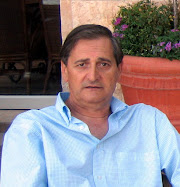
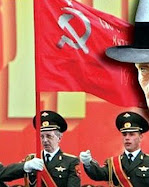










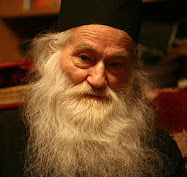







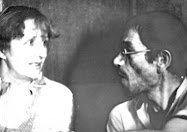



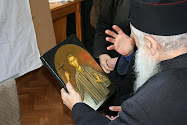
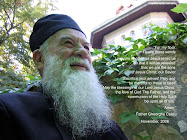

No comments:
Post a Comment